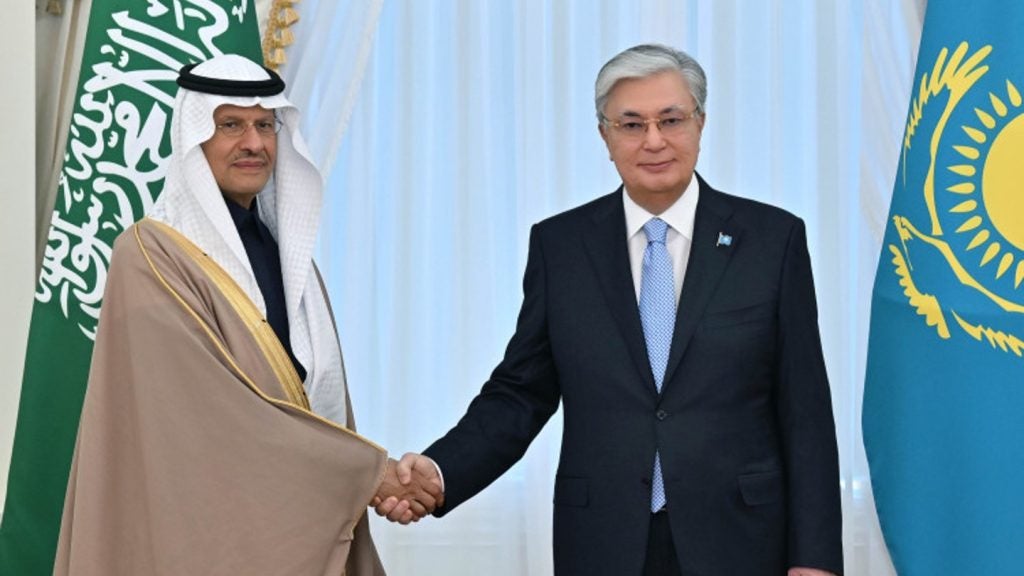Kazakhstan President Kassym-Jomart Tokayev and Saudi Arabia Minister of Energy Abdulaziz bin Salman Al Saud met in Astana, the capital of Kazakhstan, on Thursday to discuss furthering energy cooperation between the two countries.
Tokayev and Al Saud discussed the growing ties between Kazakhstan and Saudi Arabia, hailing an “unprecedented level” of bilateral relations.
Muhammad Abunaiyan, chairman of the board of directors of Saudi Arabia's ACWA Power, also attended the meeting between Tokayev and Al Saud. Abunaiyan talked about the prospects of a joint investment to build a 1GW wind power plant in the south-eastern region of Zhetysu, Kazakhstan.
The two parties concluded the meeting by signing an agreement on implementing the new power plant.
“The trip was successful,” said Tokayev in a press statement. “We have reached agreements to establish cooperation on many issues, especially in such an important field as energy. I am sure that the future of bilateral relations will be bright.”
Al Saud’s visit to Astana took place as Kazakh officials lay the groundwork for the country’s energy independence. In 2013, Kazakhstan adopted the Concept for the Transition to a Green Economy, which would see
it generate 50% of its electricity from “alternative or renewable” sources by 2050.
Last year, Prime Minister Alikhan Samilov announced plans to attract
at least $150bn in foreign direct investment (FDI) by 2029. Amid Russia’s war in Ukraine and with growing competition between the West and China in Central Asia, some investors’ attention turned to Kazakhstan. In November, South Korea-based car manufacturer Kia began work on a new full-cycle plant in Kostanai, 700km north-east of Astana. The plant is expected to create 1,500 jobs and produce up to 70,000 vehicles each year.
However, net FDI inflows in the central Asian state have steadily declined over recent years. In 2022, the figure
stood at $6.11bn, according to UNCTAD – higher than in 2017 ($4.71bn) but lower than the amount recorded in 2016 ($8.51bn).





